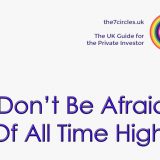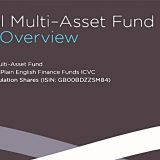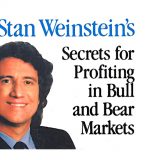As well as these FAQs, we also have a page detailing a Manifesto and some Rules.
7 Circles
7 Circles is a personal finance website aimed at private investors in the UK.
We want to provide a one-stop shop for all the information that a person might need to look after their own finances in the UK.
The point of the blog is to save the readers’ time and effort.
We expect that over time the readers of the website will introduce us to things that we’ve missed, and help us fix those things that we’ve got wrong.
Together we can make this job a bit easier for us all.
Anyone in the UK (the tax laws in particular are different elsewhere) who would like to understand better how to look after their own money.
The ideal reader would have a long-term investment horizon, as that makes things a lot easier – but we cater for everyone.
We’re only interested in ideas that can be implemented by private investors in the UK.
If the products don’t currently exist to allow us to do this, we’ll make a note of any promising avenues and come back to explore them later.
We are retail DIY investors. We’ll talk about costs and minimum levels of investment a lot, and avoid specialist products as far as we can.
There’s no such thing, and we’re not selling anything. One of the big problems of investing is that everybody wants a slice of your cash.
We don’t get paid by any financial firms to plug or review their products and services. The good news is this means that the only bias on this site is our own.
We aren’t running the website to get rich. We are of course investing to avoid not being rich.
That said, it does takes time and money to create and host the website, so we do welcome the support of readers to help keep the site running and make it better.
Nothing on the website is financial advice. It’s all educational. The small print is in our Disclaimer.
There are two good reasons why it’s not advice:
- I’m not legally qualified to give advice (technically, I think the restriction is on getting paid for giving advice)
- it’s impossible to provide proper advice via a website because the author of the articles doesn’t know anything about the personal circumstances of the reader
Although the rules of investment are universal, advice isn’t. It needs to be tailored to the specific circumstances of the investor.
All we are doing is providing the information and tools to allow the private individual to look after their own money by making their own decisions.
There are lots of ways, ranging from simply telling your friends about the site, right up to direct financial support via Patreon.
You can find out more on our Support Us page.
We aim to make four posts a week, on four different topics.
- one of these would be a weekly roundup of personal finance news,
- another would be an update on one of our portfolios, or some technical analysis,
- a third might be coverage of an industry report or event,
- and the fourth might be a “golden rule” of investing, or an article on a guru investor.
There’s lots to write about yet, so we expect to be able to keep to this schedule through 2016 and 2017. Things may slow down a little after that.
Yes we do – there are lots of places on the site where you can sign up. All we need is a first name and an email address.
We promise not to spam you or to sell your details.
At the moment we publish a weekly newsletter to everyone on the list, at Sunday lunchtime. This includes excerpts from – and links to – the previous week’s posts, and links to a few from the week before that.
The title of the blog comes from Dante’s inferno in which Dante journeys through Hell, guided by the poet Virgil. The idea is that 7 Circles can be your guide through investment hell.
It turns out that there are nine circles of suffering in the poem, but seven circles of investment Hell was all I could come up with – and 7 is a nicer number than nine.
Everyone can probably draw up their own list, but for us the seven are:
- Understanding the Problem
- Cash, debt and savings
- Tax
- Costs
- Passive investment (buy and hold, asset allocation)
- Active investment (heuristics, systems and rules) & Trading (the short-term, shorting and leverage, plus Technical Analysis)
- How to Spend it – the decumulation phase (retirement)
We have articles on each of these topics which you can access via the links above.
They pretty much picked themselves.
- The first stage in any project is to understand what problem you are trying to solve – in this case, how much money you will need and when, what you will need to put in to get there
- Next you need to start the practical implementation – make a budget, live within your means, clear your debts and start saving
- Tax is a big deal in the UK – the average tax take is 36% of GDP, but there are some really useful tax shelters (SIPPs and ISAs) available to everyone
- Over the long-run, costs make an enormous difference to your returns – if you can save 1% a year on costs, over 40 years that will double your money. One of the ways to save money is to do things for yourself.
- The next Circle covers the simple, low-maintenance, “set and forget” solution – passive investing, ideal for those who don’t have much time to devote to their finances
- For the enthusiasts who can devote some time to it, active investing is much more fun than passive, and done properly, can be more profitable. But this is not for everyone, and requires an investment in time to get started.
- The final Circle is spending the money in retirement, or decumulation as the industry calls it. The main headline here is that you shouldn’t buy an annuity before the age of 75 – use flexi-drawdown instead.
The 7C investors are 14 pairs (male / female) of mythical investors on their path to financial independence and retirement.
We track three journeys:
- from age 25 to 65, with target income of £25K pa
- from age 25 to 65, with target income of £42K pa
- from age 25 to 55, with target income of £42K pa
We divide these three journeys into 10-year stages, to end up with a total of 14 snapshots – points along the way that we can analyse to see where we should be (what the portfolio size should be) and what we should be doing to stay on track.
Each of these 14 points corresponds to one pair of our 7C investors.
We’ve made a few spreadsheets that update automatically using real-time data:
- a Portfolio Tracking Sheet
- a Watchlist Dashboard Sheet
- a Technical Analysis Sheet
There’s also a page of useful links to data, calculators and online tools such as portfolio managers and stock screeners.
We also write about investment gurus:
- we are working our way through all 50 of Warren Buffett’s Annual Letters to the shareholders of Berkshire Hathaway. You can find summaries of the letters, plus lots of quotes from the master here.
- we also have profiles of other investment gurus here.
We also post about the psychology of investment and write the occasional opinion piece. We even have coverage of the 2015 UK General Election.
Plenty.
- We write a weekly roundup of all the financial news that’s relevant to the UK private investor, usually published on a Tuesday.
- We try to attend the major investment events in and around London, and will usually produce an article on any we haven’t been to before.
- We also try to cover the major industry reports, and regular events like the Budget and the Autumn Statement.
That said, we’re not trying to sell you the new hot idea.
We’re interested in showing you (and discovering with you) things that are useful and work most or all of the time.
Probably the most important things are our portfolios. We maintain several and provide regular updates on their composition and performance.
No. I’m not putting myself forward as an original thinker – I didn’t come up with any of these ideas myself.
This is stuff I’ve picked up over the years. I’ll be summarising and synthesising and adding my own experience.
I’m also not an academic. I won’t be attempting to prove theory from first principles.
Instead I want to provide a framework to allow the average reader of this blog to manage their own money, and to do so at least as well as a professional manager would.
From everywhere – blogs, books, university courses and personal experience.
Specific sources are usually referenced within an article. Any more general resources will be added to the Sources / Further Reading page.
If you can spot where I’ve borrowed something from without providing a credit, let me know and I’ll fix it.
Of course. Just drop us an email and let us know what you’d like to see.
We’re pretty active on Twitter, and we also have accounts on LinkedIn, Google+, Facebook and even Pinterest.
We also moderate a couple of sub-Reddits:
- UKFinanceOver30 curates more content relevant to the UK Private Investor – but this time from other interesting blogs.
- UK_FIRE_and_Frugal is also blog-driven, but focuses on Financial Independence, Early Retirement and Frugality, all from a UK perspective
If you’re new to reddit, you can find out all about it here.
We also have pages on the main website which bring together the latest posts from the best UK finance blogs and the FIRE and Frugal blogs.
Mike
- Back during the Thatcher administration, I graduated with a Science degree in 1984. I’d been told that would lead to work, but there were no jobs, so I moved into Computers. (It was either that or Accounting).
- A couple of years later, I moved to London to work in a Software house writing trading systems for brokers. My first day in London was Big Bang day.
- This was the time when all the foreign banks were buying up the English stockbrokers, and I joined one of those banks to help with the integration, still on the technology side.
- I wanted to move over to the Front Office, so I did an MBA in Finance hoping it would help.
- It didn’t, so I joined a management consultancy.
- I quickly discovered that consultancy is a racket (you can’t tell the client what they need to know, you have to tell them what will lead to more sales of consultancy services) so I went freelance.
- I spent the next 15 years mostly working in a variety of banks (although I also spent four years at the BBC) on technology and reengineering projects, eventually ending up managing a property portfolio for a big investment bank.
- I got fed up with work and quit, but I didn’t like being at home, so I took one last job working for a charity.
- I didn’t like that either, and I finally retired in 2011, around five years ago.
I was born poor and I didn’t like it.
I thought that investing was the easiest – though not necessarily the quickest way to get rich.
My dad worked in a textile factory and when he was made redundant, he started buying the Investors’ Chronicle and trading stocks with his redundancy money.
So I guess I picked it up from him, even though I’d left home by that point.
Not specifically, but in the run-up to the 1987 crash I was mostly investing in privatisation stocks and unit trusts.
What happened was the 1987 crash – and the famous hurricane – I lost a lot of my (modest) portfolio.
I’d also bought a house that month for the most money I could borrow against a salary that was three times the national average at the time.
I then lost my job in October 87, so I ended up selling a lot of my portfolio before it recovered, simply to pay the mortgage
Xmas 1987 was pretty bleak, but all things must pass.
I would describe myself as very cautious, but I know from taking the risk aversion questionnaires – and by looking at the behaviour of my mates – that I’m actually not that low risk after all.
My strategy has evolved as I’ve gained more experience – and got older – but over the years I’ve tried most things at various times.
I probably am most drawn to value investing, but you can’t always buy things at attractive prices.
I’m also a fan of momentum.
I have less time for growth stocks as they tend to blow up in the end, and I never spot them early enough to get the 10-baggers.
I look at my net worth in the round, rather than singling out stocks.
I have about 40% in Property
I have about 15% in Cash – for three reasons
- It’s partly because I’m quite cautious at the moment about market levels and the economic outlook
- Partly because I don’t like the look of bonds, so I’d rather keep more cash
- And partly because I am now of retirement age and don’t have an income any longer – so I like to keep several years of expenses in cash, so that I don’t have to sell stocks in a downturn (this could be a legacy of my experience in 1987)
I also have about 7% in Defined Benefits pensions – I wish this was higher because they were a great product when they were on offer
So that leaves about 38% of my net worth actually in the markets
Of that, about 50% is in the UK and 50% abroad (US, Europe, Japan, APAC, and emerging markets)
Outside of the UK I buy only funds (ETFs, OIECs and investment trusts)
For the UK, I mostly buy stocks, but I have some legacy funds that I haven’t sold yet
Most of the stocks are FTSE-350, but in the last year or so I’ve started an AIM portfolio, mostly because of the great info that’s available on websites and on Twitter.
That’s gone really well so far – considering how little time I’ve put into it – and it’s an area I plan to get more involved in.
No sector preference, though I don’t like non-producing resource stocks, or high-tech story stocks.
I like to see profits, ideally profits stretching out into the future.
I don’t really have any single criterion that would make me press buy
I have a lot of things that might put me off – too expensive, no profits, earnings not growing, cash flow issues, too much debt
I don’t run a concentrated portfolio like many investors, so I’m not looking to do as much research as they might
I just listen to and read as much as i can, and look for potential opportunities, then when I feel comfortable I buy
If things don’t work out, then I like to get out fairly quickly
I think we need to distinguish between the decisions that require the most wisdom – which are really the hardest decisions rather than the wisest – and the decisions that have the greatest impact on your net worth.
- The former will mean something different to everyone, so I’m going to focus on the latter.
- To get a big impact you need to either hold something for a long time, or be operating close to a market extreme.
So I’ll choose three:
- First, in the dot com boom I was momentum trading dozens of stocks, running the price data overnight and making trades throughout the next day.
- I made good money for about a year and then I had a down week.
- I sold everything the next week, when a lot of my mates held on and ended up losing more than they had made.
- Second, at the bottom of the market in 2009, I managed not to sell anything.
- I was working at one of the investment banks involved in the crisis at the time, and it was clear that most people didn’t know what was going to happen next.
- I was down an awful LOT of money and my Dad was dying.
- I really felt like selling.
- But I hung on and put extra money back into the market as it recovered.
- Third, property is a great asset class here in the UK and one of the easiest markets to time.
- I made a big bet in 1995, tripling the value of the house I was living in by moving to a much better area of London
- That turned out to be a very good time to buy as prices started going up straight away.
All three of those decisions have made a big difference.
There are five things actually:
- I would change the regulatory regime so that advice wasn’t so restricted. At the moment advice comes either from firms with an interest in profiting from you, or from so-called independent advisors who feel they need to charge hundreds of pounds per hour. So most people don’t get the advice they need. I’d like to see a new category of “guidance” introduced so that experienced and successful investors like me could help people.
- On a related note, I’d like to be easier to set up a “mini-fund” based around a limited company or partnership – something like Warren Buffett’s original vehicle. At the moment I think you can only really do this for sophisticated (high income or high net worth) individuals, and the costs are high.
- Like many other private investors in the UK, I’d like to see corporate voting rights for nominee investors in ISAs and SIPPs.
- I’d like to do something about the standard of mainstream financial journalism. Too many commentators and writers in the general media – the ones with the biggest audiences – seem to have very little experience of real investing.
- The final thing is schools. We teach kids a ridiculous amount of things that will be no use in their adult lives, but we don’t teach them how to manage their finances. I had to learn everything for myself, and it took me into my thirties to feel on top of things. I’d like to get involved with bringing financial education on to the curriculum.
For me specifically, I wish the current tax breaks had been available when I was younger. I was earning very good wages from my late twenties, but it wasn’t until I was 45 that I was able to save serious amounts of money. It’s the one thing I have to thank Gordon Brown for.
I also wish that low-cost online trading had been available.
More generally, people should get more heavily involved with investment earlier on – it takes a long time to become good, and indeed, to realise how good you are. By then you’ve wasted a lot of the time you could have spent compounding your gains.
I have been investing my own money for 30 years, right back to the Big Bang in the City (and not long after, Black Monday).
I’m currently managing a decent-sized portfolio (see the blog for an idea of what size this might be) without a financial adviser.
- I think this is a good thing, you may not agree.
I trade when I have the spare time, or when the markets are compelling (as in the dot-com boom).
- During 2015, building this website has taken so much time that I haven’t traded as much as I would have liked
- I hope to trade more in 2016
I’m not and never have been a professional money manager. I have worked in investment banks for many years, but not in trading or asset management.
The whole point of this website is to look at financial challenges, products and ideas from the perspective of the lonely individual investor who is mainly trying to avoid stepping on a landmine.
Lessons and Rules
I think that the three things that a Private Investor can control that will make the biggest difference to his long-term returns are Costs, Taxes and Asset allocation.
- Particularly in the low-return environment we’ve experienced since 2008, high running costs will kill your returns.
And compared to most of my investing career, the tax regime here in the UK is now very benign:
- You can put £40K pa into a SIPP
- You can put £15K pa (£20K from next year) into an ISA
- You can build up a £1M pension pot
- You can make as much money on your primary residence as you like
That really is an invitation to sort out your future
And then the third thing is asset allocation, which is just the flip-side of diversification.
- Most people keep their savings in cash, which is a bad option in the long-run.
- Then they graduate to UK funds and stocks
- But you need to have money outside the UK, and in property and commodities like gold, and things like private equity and infrastructure funds as well.
You need to see investing as a life-long thing, like your health.
You need to think long-term about your goals and you need to have a plan to work towards them.
That’s much more important than chasing a hot tip or the next mining multi-bagger.
The goal is not to get rich quick.
In the short-term, the aim is to be a little bit better off next year than you were last year. This is wealth preservation.
Any post-tax return above inflation is good. The next target is beating the the risk-free rate (the return on 10-year government bonds).
In the long-term, the aim is to amass enough money to enter retirement, at whatever age that might be.
This requires the provision of permanent income for life, which in turn means building up a pot of money of a specific size.
Most people call this reaching financial independence (FI). Some people aim to be FI at 65, others at 50.
There’s even a “retire early” branch of FI (called FIRE) whose members live frugally and save a large proportion of their income in order to hit FI in their 40s or even 30s.
It makes perfect sense to look after our own money – nobody else has the same stake in our financial future, and the products and tools available to the DIY investor have never been better.
We can certainly do as well as, or even beat the professionals.
- we can avoid as many advisor fees and commissions as possible;
- we can invest where and when we want, or not at all;
- we can be nimble;
- we can take the long view without worrying about quarterly performance against a peer group;
- we have an audience of one to please and
- we care more about the outcome
Probably the easiest way to understand that would be to take a look at our manifesto.
Some of the rules from that page have been turned into questions here.
Yes. There are no silver bullets, but there are plenty of golden rules. We have 52 of them in our MoneyDeck series of articles.
Some of the most important are:
- over the medium-term, you have to beat inflation as a minimum, or else you are losing purchasing power
- this means that you will have to take on some risk to achieve the growth you need – sitting in cash is not a long-term option, no risk is the biggest risk of all
- asset allocation is more important to returns than stock selection
- risk management is vital – don’t have more than 2% of your money in a single investment (apart from your house) and watch out for multiple investments with the same company
- buying things when they are cheap gives you more chance of doing well, so you need to learn how to value things
Not at all. The Cash, debt and savings series is aimed at beginners.
In addition, for those new to investment, we have the MoneyDeck series – a set of 52 “golden rules” for Private Investors, each in the form of a playing card.
- For example, the Ace of Hearts is called Do the Math – the first thing that you need to do in investment is to work out how much money you will need in the future.
The MoneyDeck is series is closely linked to our Master Plan, which takes the best lessons from each of the 7 Circles and combines them with the MoneyDeck rules to come up with a lifetime money pathway.
As well as things you must do, some of the rules in the plan cover the pitfalls you need to avoid.
The answer depends on what you mean by successful. The better you want to do, the more time and effort it will take.
- Successfully investing your spare cash in passive funds is not difficult or time-consuming.
- Beating the market through active investing is a lot more difficult.
All investors need to have a pot of money to grow, or a meaningful amount of money they can contribute each month.
Never borrow money to invest.
It certainly won’t do any harm, but it’s not essential. I am good with numbers – I have a science degree and an MBA.
That said, you only need arithmetic to follow most investment discussions. Occasionally there will be some statistics, and your life will be easier if you can operate a spreadsheet.
If your maths is poor, feel free to skip some of the logic and head straight to the conclusions.
You can’t , and you don’t need to.
Minimising the risk from this uncertainty will generally mean employing diverse approaches.
One name for this is hedging. On this site, hedging means splitting money across all the available ideas which stand up to scrutiny. It doesn’t simply mean going short as well as long.
If we can’t predict which of two things is most likely, we’ll put some money on both outcomes.
Sitting back and doing nothing is not an option.
Portfolios
There are two good reasons.
The first is that different approaches to investing will produce different results depending on market conditions. The easiest way to protect against this – and indeed, to take advantage – is to run several different styles of portfolio at the same time.
The second reason is that people differ in their appetite for and tolerance of risk. Some of the portfolios will be too racy for some readers, and some portfolios will be too boring for other readers.
At the moment we have four portfolios:
- Piggyback Portfolio – which borrows ideas from other published portfolios and stock lists
- SmallCap (AIM) growth portfolio
- Investment Trusts portfolio
- passive ETF portfolio
I also regularly review the performance and composition of my own overall portfolio.
There are two more that are definitely coming:
- an Income or Dividend portfolio
- a Technical Analysis portfolio, probably using trend-following and momentum
It’s also likely that the Piggyback portfolio will evolve into a general LargeCap growth portfolio to complement the SmallCap (AIM) portfolio.
We’re thinking about two more for 2016:
- a Stock Screens portfolio, based on the screens used by famous investors
- a listed structured products portfolio, using things like the SG listed notes
The Piggyback was really an excuse to take a look at the portfolio resources that were already available in the UK for free.
We’ve pretty much covered everybody by now, so we would be looping back over old ground.












































Morning Mike,
I found your site through the weekend reading post on Monevator (the URL mentioned was – https://the7circles.uk/6%E2%99%A3-take-up-your-workplace-pension-offer/).
Great job with you being featured!
I recently started my own blog providing basic financial guidance to 20-30yr old’s in the UK.
To celebrate my blog launch I’m doing a big personal finance book giveaway and thought your crowd might be interested.
It ends this Sunday (9th of October). The winner gets five best-selling personal finance books:
– Rich Dad, Poor Dad (Robert Kiyosaki)
– Smarter Investing (Tim Hale)
– How to Own The World (Andrew Craig)
– The Richest Man in Babylon (George S Clason)
– How to Get Rich (Felix Dennis)
Thanks!
-Sam